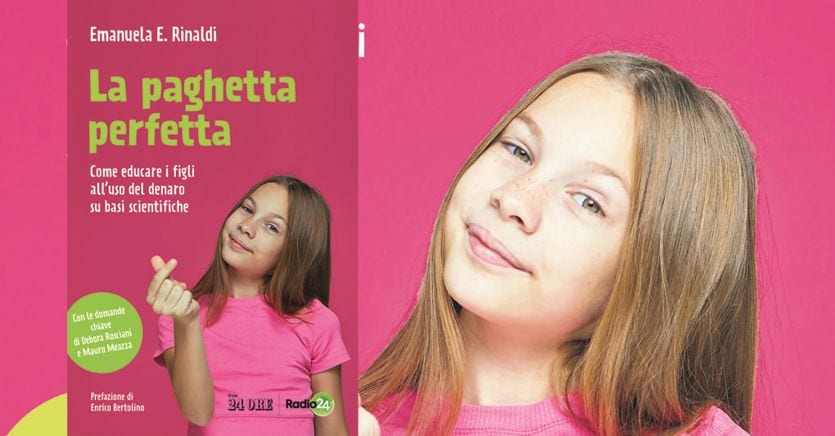How much money for pocket money? At what age can we start giving pocket money? Is it okay for parents to give their children pocket money? Money has been present in the life of individuals since they are young: in the fairy tales they listen to, in the films they see, in the speeches that are made in the family and in the messages that circulate on social networks. Many parents, however, report that they feel unprepared (or unable) to educate their children to develop a good relationship with money and a fair level of financial skills. To guide them in helping children learn how to manage money, Il Sole 24 Ore presents in newsstand for one month from Saturday 15 Octobere in bookstores from 28 October, the volume “The perfect pocket money. How to educate children in the use of money on a scientific basis “by Emanuela E. Rinaldi, Associate Professor of Sociology of Cultural and Communicative Processes at the University of Milan-Bicocca, who has been studying financial education for years, and with the key questions of journalists Debora Rosciani and Mauro Meazza, hosts of the Radio 24 program on savings “Two of Pentacles”And authors of several books on investments and savings published by Il Sole 24 Ore.
The book is part of the many initiatives conceived by Sole 24 Ore on the occasion of Financial Education Monthpromoted by the Mef Edufin Committee, with the aim of increasing the awareness and financial culture of Italian families.
Reward good grades at school and home chores with money or not? What are the factors that influence the relationship with money during childhood and adolescence? There are many advice on these issues online, but few are based on rigorous scientific studies. The volume, on the other hand, intends to answer these questions by summarizing the main research on financial education processes. “An agile guide like this of the perfect pocket money can be a valid support for parents who have to negotiate daily with their children while keeping the helm of the domestic economy with the bar straight and foreseeing “family budget variances” that could alter future equilibrium. (for those who have more children and will have to renegotiate everything with the second or third), all in the absence of a family PNRR on the horizon”Reads the introduction by Enrico Bertolino, comedian, stand-up comedian, TV presenter and Italian actor.
Guided by the most recurring, sometimes provocative questions posed by the listeners of Due di denari to Debora Rosciani and Mauro Meazza, the author in the volume responds to doubts and curiosities about money as a mediator of family relationships. “It seemed essential to publish the book today, in 2022, because Italian society is experiencing profound changes that are impacting not only at the political-economic level (the effects of the pandemic, the war in Ukraine, the energy crisis, galloping inflation and the persistent high rate of youth unemployment) and socio-demographic (the denatality, the lengthening of the life-average, the growth of the group of “adults”, or people over 65 who live an active third age often different from that of the elderly of previous generations), but also on the relationship with money between generations and in generations – Rinaldi, Meazza and Rosciani explain in the introduction of the volume – l’emergence of cryptocurrencies, the dematerialization of money, the perception of children and adolescents according to which, using the terms of Pierre Bourdieu, a high “social capital” (eg: many followers) translates into a high economic capital (eg: “many money ”), are further elements that change the relationship with money in contemporary society. Because what a child often wishes for his near and distant future is not so much to become rich, but to be happy.”.
